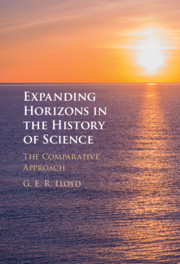Expanding Horizons in the History of Science
This book challenges the common assumption that the predominant focus of the history of science should be the achievements of Western scientists since the so-called scientific revolution. The conceptual frameworks within which the members of earlier societies and of modern indigenous groups worked admittedly pose severe problems for our understanding. But rather than dismiss them on the grounds that they are incommensurable with our own and to that extent unintelligible, we should see them as offering opportunities for us to revise many of our own preconceptions. We should accept that the realities to be accounted for are multidimensional and that all such accounts are to some extent value-laden. In the process insights from current anthropology and the study of ancient Greece and China especially are brought to bear to suggest how the remit of the history of science can be expanded to achieve a cross-cultural perspective on the problems. This title is also available as Open Access on Cambridge Core.
Sir Geoffrey Lloyd is Emeritus Professor of Ancient Philosophy and Science at the University of Cambridge and Senior Scholar in Residence at the Needham Research Institute. He has authored or edited more than thirty books and won numerous international prizes and medals (Dan David Prize, Fyssen Prize, Sarton Medal, Kenyon Medal) for pioneering studies in the comparative history of science.
